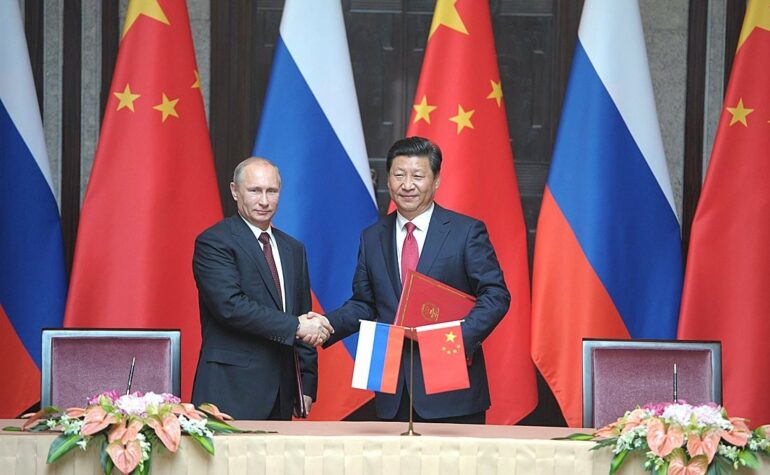Russian President Vladimir Putin and Chinese President Xi Jinping were reportedly overheard in Beijing this week in an unusual hot-mic moment, discussing organ transplants and the possibility of living to 150 years old—or even forever.
The exchange, captured during a military parade marking the 80th anniversary of the end of World War II, was broadcast on Chinese state television CCTV and later circulated by Bloomberg.
Both Putin, 72, and Xi, 72, are known for tightly controlling their public appearances. The candid conversation offered a rare glimpse into the private musings of two leaders who have positioned themselves as rivals to American leadership on the global stage.
“With continuous advances in biotechnology, human organs can be continuously transplanted. The longer you live, the younger you become, and (you can) even achieve immortality,” Putin said, according to the translation.
Xi replied that reaching old age no longer carries the same weight in today’s world. “Some predict that in this century humans may live to 150 years old,” he said. “Earlier, people rarely lived to 70, but these days at 70 years you are still a child.”
North Korean leader Kim Jong Un, 41, who was also present at the parade, could be seen smiling during the exchange, though it remains unclear whether the conversation was being translated for him.
The discussion, brief but striking, raised eyebrows as it underscored the ambitions and worldview of Moscow and Beijing at a time of deepening cooperation between the two authoritarian powers.
For years, both Putin and Xi have presented themselves as defenders of a new world order, rejecting Western models of democracy and freedom. Now, in their off-the-cuff remarks, they appeared to muse about something even more grandiose: conquering mortality itself.
While the full context of their discussion was not broadcast, the clip quickly spread on social media, sparking speculation about the leaders’ interest in biotechnology. It also fueled broader questions about the ethical and political implications of regimes that already exercise sweeping control over human life turning their focus to extending it indefinitely.
President Donald Trump, still active on the global stage as he works to negotiate a peace deal between Russia and Ukraine, took notice of the spectacle.
In a message to Xi ahead of the parade, Trump offered congratulations while also issuing a characteristically sharp aside about America’s adversaries.
“May President Xi and the wonderful people of China have a great and lasting day of celebration. Please give my warmest regards to Vladimir Putin, and Kim Jong Un, as you conspire against The United States of America,” Trump wrote on Truth Social.
The contrast was stark. While America’s rivals toyed publicly with the notion of transplant-driven immortality, Trump sought to remind Americans that these same leaders are bound together not by dreams of medical breakthroughs, but by their shared hostility to the United States.
For conservatives, the episode serves as a reminder of both the vanity and the ambitions of foreign strongmen. As Putin and Xi ponder ways to outlive their people, critics note that their citizens are denied basic freedoms.
Trump’s response, meanwhile, signaled his continued willingness to call out authoritarian leaders—even in moments when they appear more preoccupied with science fiction than with the pressing crises of war and peace.
[READ MORE: NBC Corrects Pronouns After Minneapolis Mass Shooter Identified as Transgender Woman]



